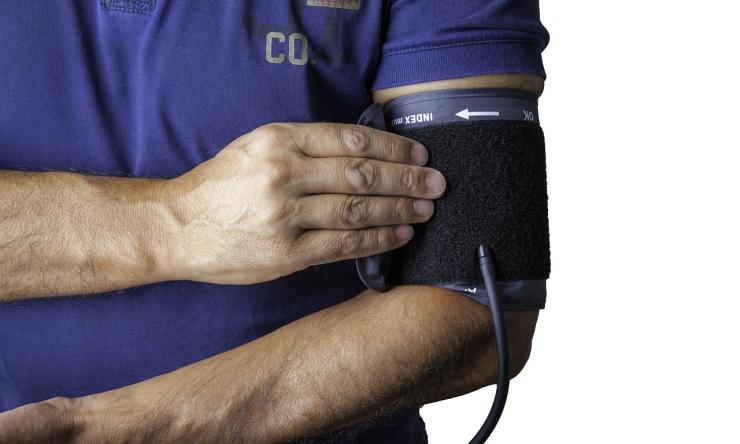Keep it steady: the importance of maintaining healthy blood pressure
If you are waiting for symptoms to pop up as a warning for high blood pressure, think again. Dr. Vijay Nambi, cardiologist and professor of medicine at Baylor College of Medicine, says it’s called the silent killer for a reason.
“You might hear people say dizziness, lightheadedness or even a whooshing sound in the ears are signs of high blood pressure, and while there might be a connection, the likelihood that high blood pressure presents this way is very low. Those are symptoms you should see a doctor about because there is a better chance they are a sign of other health issues unrelated to your blood pressure,” said Nambi. “If you are waiting for a tell-tale sign of high blood pressure, you most likely won’t see one until it is too late. That is why regular screening is so important.”
It is important to know your stats when it comes to blood pressure numbers. High blood pressure, or hypertension, can quietly cause damage to your arteries and heart for years, leading to heart attack, stroke or heart failure. It increases your risk for aneurysms too. Since this can affect arteries all over the body, even vision and kidney issues can pop up.
When your blood pressure is measured, the top number is called systolic blood pressure and measures how much pressure the blood is exerting against the artery walls when the heart beats. The lower number is diastolic and indicates how much pressure the blood is exerting against the artery walls between heart beats, when the heart rests.
So what readings are considered healthy?
Nambi says a normal or healthy range is up to 120 over 80 and below. Once you are in the 120s for your systolic reading, it is considered elevated. You are considered to have high blood pressure, or hypertension stage 1, when your range is in the 130s over 80s. Stage 2 is 140 or higher, or over 90 or higher. If your reading is higher than 180 over 120, you are in a crisis stage where immediate medical attention is usually needed.
The American Heart Association provides a chart to help better visualize and understand these ranges.
Even if you never reach the crisis stage, the higher your blood pressure, the higher your risk is for cardiovascular events such as heart attack and stroke. Over time, the pressure damages your heart and arteries.
Prevention and treatments
Treatment should be considered once you are in the hypertension range. If you have other illnesses such as diabetes, treatment might begin sooner. Discuss with your doctor whether medications are indicated and if yes which ones.
“We know medications work to lower blood pressure, but while we have an estimate, we can’t predict how much blood pressure reduction each medication will provide for an individual. For example, we can’t fine tune the treatment to guarantee your BP will go back down to exactly 120/80. It is a spectrum, and some people respond differently. Working closely with your doctor and adhering to prescriptions is important to find the right combination to reduce your risk of those deadly side effects,” Nambi said.
That is another reason why knowing your blood pressure numbers and catching them before they reach critical stages is important. It gives you and your doctor a chance to work on lifestyle changes and avoid medications, Nambi said.
Some tried and true diet tips include eating more fruits and vegetables and cutting down on products that are high in sodium. Exercising and losing weight also may help to lower blood pressure. It can take months to see a change in readings, but the increase in healthy foods and exercise helps to improve overall health. Alleviating stress and improving your sleep practices, such as getting more sleep or treating issues such as sleep apnea, also contribute to blood pressure changes. In fact, these “lifestyle changes” could give you better blood pressure reduction than most, if not all, medications.
Can I monitor my BP at home?
There are many reasons that people do not or cannot make it to their doctor’s appointment, from traffic to a busy schedule, to inconvenience. However, Nambi says that after an initial doctor’s visit, you should be able to monitor your blood pressure at home.
“You should definitely see a doctor initially to make sure you are getting accurate readings and treatment plans. Your doctor’s office can help you decide which type of BP monitoring system you can use at home. They can sometimes help you calibrate it (by comparing your machine readings with theirs at the same time) and can help you understand the readings,” Nambi said. “It is not a replacement for a doctor, but it is one way to keep your health a priority.”










